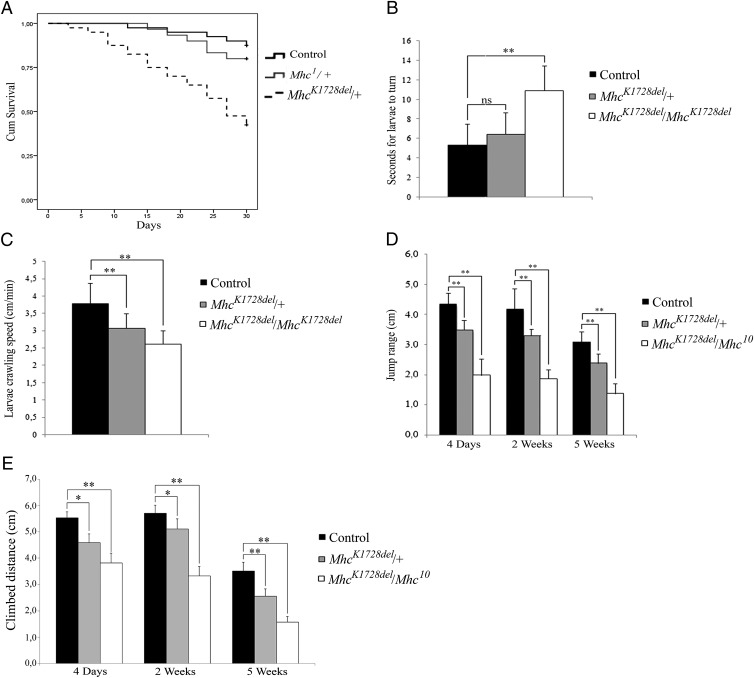Fig. 1.
Impaired muscle function in MhcK1728del mutants. (A) Life span: Heterozygous MhcK1728del/+ adult flies show mean lifespan of 23 d vs. 29 d for control flies (P < 0.001 log-rank test) and vs. 28 d for heterozygous Mhc1/+ flies (P = 0.002 log-rank test). (B) Larval turning assay: Homozygous MhcK1728del/MhcK1728del larvae show a significant increase in time needed to turn belly-down when placed on their backs (P < 0.001), compared with controls. No significant increase in time is seen for the heterozygous MhcK1728del/+ larvae. (C) Larval crawling speed: Both heterozygotes and homozygotes show significant reduction in crawling ability (P < 0.0001) at third-instar larval stage. (D) Adult jump ability at 4 d, 2 wk, and 5 wk of age: jump ability of MhcK1728del/+ and MhcK1728del/Mhc10 flies is reduced, compared with controls (P < 0.0001 for all age groups). For a given genotype, there is no significant difference in jump ability between 4-d-old and 2-wk-old flies, but ability significantly declines between 2- and 5-wk-old flies (P < 0.0001). (E) Adult climbing ability at 4 d, 2 wk, and 5 wk of age: climbing ability of MhcK1728del/+ and MhcK1728del/Mhc10 flies is severely impaired compared with control flies (P < 0.0003) at all time points measured. There is no significant difference in climbing ability between 4-d-old and 2-wk-old flies, as observed with jump ability, but the deterioration is highly significant between 2 and 5 wk for all genotypes (P < 0.0001). *P < 0.05; **P < 0.001.

